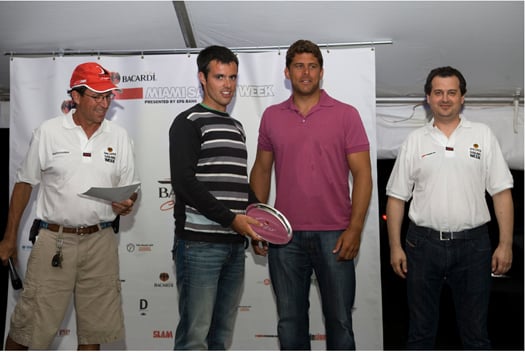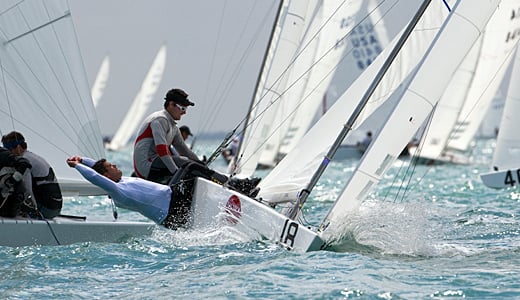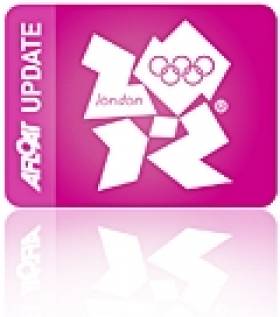Displaying items by tag: Pascal Rambeau
O'Leary and Burrows Pipped by Single Point for Bacardi Honours
France's Guillaume Florent and Pascal Rambeau accomplished a rare achievement in Saturday's finale of the 84th event Cup.
Florent, the 2008 Olympic bronze medalist in the Finn class who switched over to Star keelboat last year, won the prestigious regatta at his first attempt.
O'Leary and Burrow's second overall in the 93-boat fleet is being hailed as a major result for the pair who have sights firmly set on selection for the London 2012 Olympic Games.

Peter O'Leary and David Burrows (centre) receive the Bacardi Cup second place salver in Miami yesterday. Photo: Courtesy Bacardi Cup/Star Class
Their final score after six races that began on Monday was 24 — only one point behind the French duo.
In a consistent display of speed and tactical ability against a big international fleet only Ireland posted the most consistent scores of the series with all results in the top ten.
Racing in the event was cut short due to thunderstorms on Thursday.

Peter O'Leary with crew David Burrows at full stretch at the weather mark. Photo courtesy Bacardi Cup
O'Leary and Burrows recorded single-digit finishes over the course of the regatta; they finished with an 8-4 on the penultimate day to move from fourth overall into the lead of the 89-boat fleet with 18 points only to lose out in the final race.
Full Results HERE.
Star Class website/results/comment HERE
Photos of O'Leary and Burrows in action on our gallery HERE
Podcast interview and Career highlights of Peter O'Leary HERE





























































